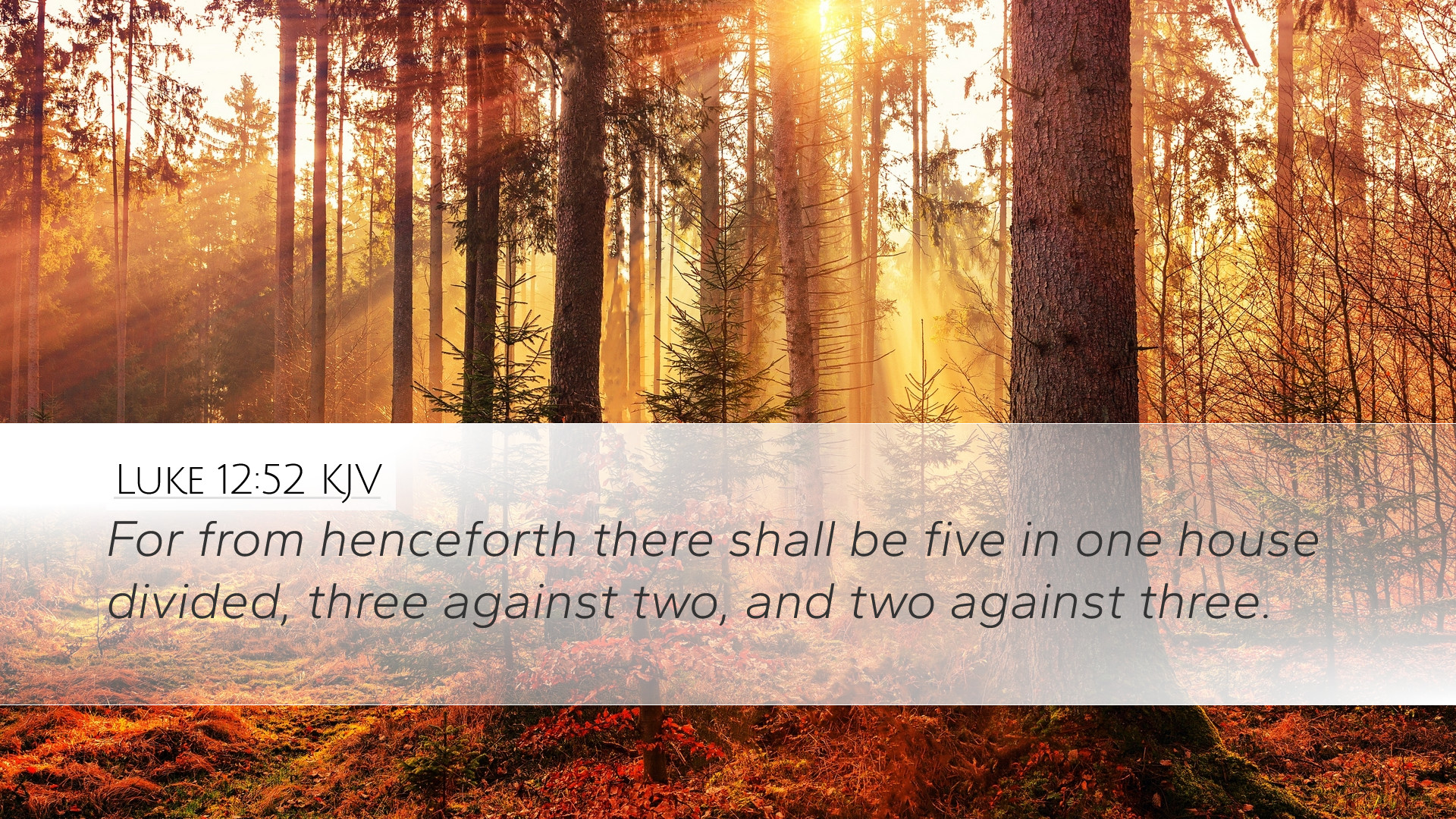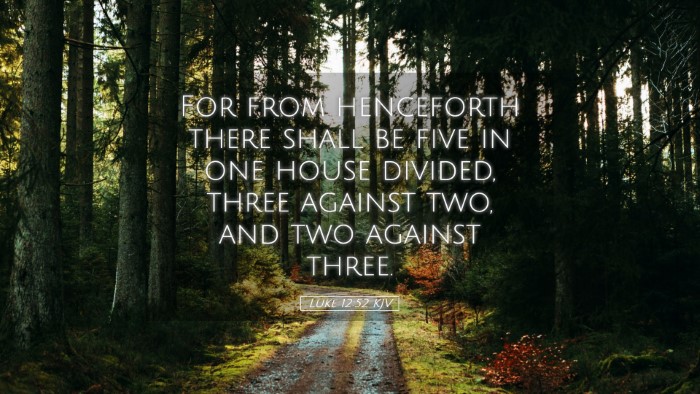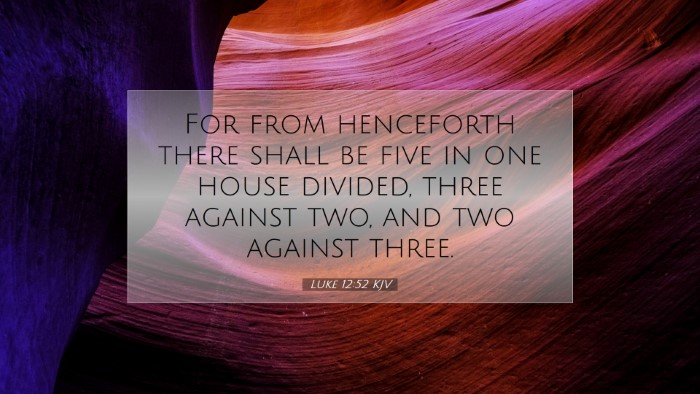Commentary on Luke 12:52
Luke 12:52 states: "For from henceforth there shall be five in one house divided, three against two, and two against three." This verse encapsulates the sentiments surrounding the tension that can emerge due to faith in Christ. It reveals the implications of discipleship, illustrating that allegiance to Christ may lead to divisions, even among families. This commentary seeks to explore various insights from renowned public domain commentaries aimed at providing depth to our understanding of this intricate verse.
Interpretation of Division
Matthew Henry's Commentary sheds light on the notion that Christ anticipated the disruption His teachings would cause. He states that this division is emblematic of the deeper spiritual conflict present when one embraces the gospel. Families, often bastions of unity, may experience strife because of divergent beliefs. Further, division does not indicate failure but highlights the stark choice presented by Christ.
Albert Barnes follows this thread by emphasizing how such divisions are a natural result of following Jesus. Disciples may find themselves at odds with family members who choose not to accept the message, underscoring the heart-wrenching realities of living out one's faith. Barnes articulates that this division serves a dual purpose: it is both an illustration of the challenges faced in faithful living and a reminder of the costs associated with discipleship.
The Spiritual Conflict
This verse emphasizes a spiritual conflict that transcends mere familial relations. Adam Clarke elaborates that the number of those divided—five, with three against two—symbolizes a heightened sense of familial tension that reaches into the heart of community life. Clarke points out that this division serves to strengthen the resolve of believers, compelling them to stand firm in their convictions amidst opposition.
Cultural Context
- Historical Context: The time of Jesus was rife with social and religious tensions. The followers of Jesus were often marginalized, and their choices led to discord at home, reflecting impromptu bursts of faith against entrenched traditions.
- Family Dynamics: In antiquity, family loyalty was paramount. When one member of the family chose to follow Christ, it could lead to severe emotional conflicts, ranging from ostracism to outright hostility.
Theological Implications
The theological implications of Luke 12:52 are profound. This passage encourages a deeper exploration of the cost of discipleship. Matthew Henry remarks that often, the cost of following Christ results in both internal and external strife, reflecting the dual realities of love and conflict experienced by many believers.
Moreover, Albert Barnes asserts that while the sword of division may bring pain, it also serves as a clarion call for the church to stand united in faith amidst societal opposition. This division serves as a filter to identify true discipleship—those who are willing to bear the burden of division for a greater cause.
Application for Believers
Believers are encouraged to reflect on their commitment to Christ and the implications it may have on their relationships. Here are several points emphasized by the commentaries:
- Embrace the Cost: Every disciple must count the cost of following Christ. The involvement in His mission may alienate them from their kin.
- Stand Firm in Faith: When faced with division, unwavering faith is crucial. Believers must support one another amidst such trials.
- Seek Unity: While division is a reality, Christians are called to pursue peace and cultivate understanding within their spheres.
Conclusion
In conclusion, Luke 12:52 encapsulates the essential struggle of the Christian life. Through the insights of Matthew Henry, Albert Barnes, and Adam Clarke, we appreciate how this verse not only depicts the inevitable division that can arise from faith but also challenges believers to navigate their commitments with wisdom and grace.


